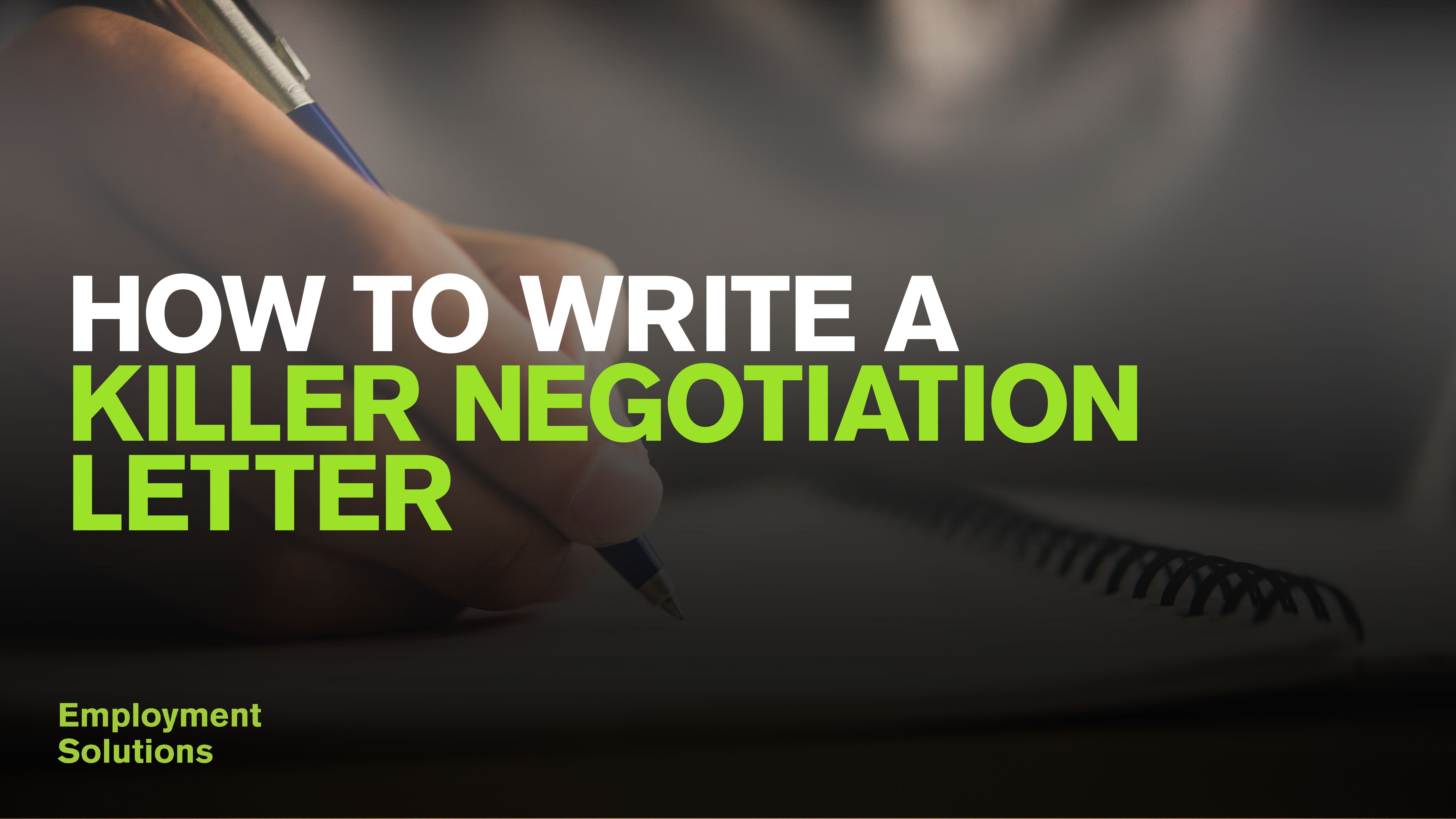So you did your research, nailed the interview and unsurprisingly got an offer of employment!
Well done and good luck in your new career… Hang on, wait a minute.
Before you go in all guns blazing and accepting the job, you’re going to want to make sure that the offer meets your expectations. It’s not always easy hitting the breaks, stopping and evaluating everything, but its vital that you do this. If you accept the job, then decide that the salary isn’t right or benefits aren’t right a little way down the line it’ll be a lot harder to negotiate.
Not many people would be confident negotiating a job offer, or even know how to negotiate a job offer. Still, it is a perfectly acceptable practice, and more companies are open to negotiation than you might think.
You might think that this is something that you should do in person, and if you can do that excellent, but to some, that would be a horrific and nerve-racking task. It’s so much easier to put everything in writing that way you won’t forget anything. This approach also doesn’t put the employer on the spot and gives them time to think your counter-proposal over. So we have put together this guide on how to negotiate a job offer.
What should you put in your negotiation letter?
Make sure that the letter is correctly addressed, to the person who signed your offer letter.
Start your letter by thanking them for the offer.
Let them know how enthusiastic you are about the role.
speak about the company in a positive manner
Clearly, state that you would like to suggest some changes to the job offer, e.g. Negotiating job benefits.
Justify your requests with clear well-constructed points and give valid data to support them
Make it clear that you are open to a further discussion about the offer.
Clearly, state that you are happy to start the role as soon as possible under the right conditions.
Ensure that your letter conveys a respectful tone and doesn’t come off as a list of demands or a ransom note.
If your letter is well written and your points valid, the employer should be convinced to adjust the offer.
How long should you wait for a response?
You’re going to want to give the employer time to read and consider your letter and liaise with other staff members involved before they respond. You should also keep in mind the start date of the new job.
If you have had no response or the start date is approaching after a week, it is not unreasonable for you to send a follow-up asking when you should expect a reply.
Now you should be prepared to write a fantastic negotiation letter, bear in mind that if you are working alongside a recruiter, they can do this bit for you and go to the client directly.








